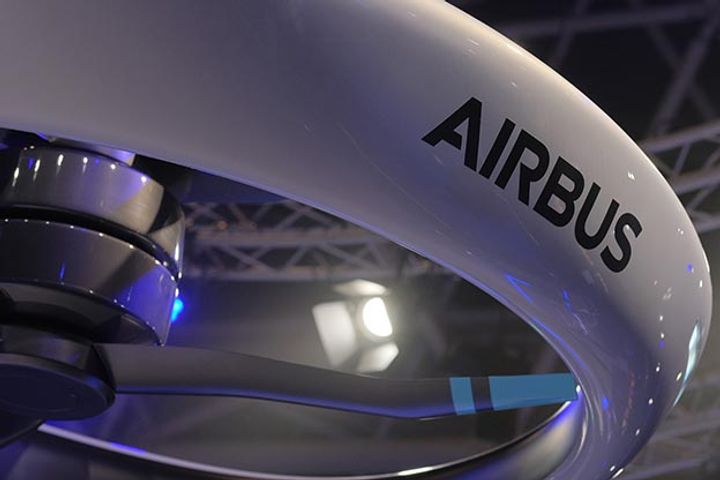 Airbus Opens China Innovation Center
Airbus Opens China Innovation Center(Yicai Global) Dec. 12 -- European aerospace giant Airbus has opened its China Innovation Center, its first such facility in Asia, as it looks to bring high-speed internet, flexible displays and improved navigation systems to its aircraft.
The facility already has over 20 staffers on its roster to research onboard hardware, cabin technology, connectivity, smart manufacturing and urban air traffic, state-backed news site The Paper reported after attending a press conference at the center on Dec. 10. Initial investment into the Shenzhen hub was 10s of millions of euros, the report added.
The center also penned a memorandum of cooperation with Shenzhen's Royole, which specializes in making flexible displays and sensors, at the press briefing. The two firms will look at putting flexible electronics into aircraft cabins for commercial operations.
First steps toward doing that would be to replace existing screens -- which would also shed mass, reducing fuel consumption and lowering ticket prices, said Luo Gang, chief executive of the research hub. Other flexible displays could also find their way into cockpits to make imagery more vivid, he added.
Airbus has also inked two onboard connectivity agreements with telecoms equipment maker Huawei and carrier China Mobile.
It joined hands with Huawei early last month at the Zhuhai Airshow, where the pair agreed to tackle research and applications for in-flight connectivity and the Internet of Things to offer high-speed internet services while in the air.
The aircraft manufacturer then teamed up with China Mobile at the telecoms provider's recent global partners conference. The two agreed to work together on air-to-ground high-speed networks on the Chinese mainland, leveraging 5G technology to develop end-to-end solutions offering in-flight internet access.
Airbus also plans to link its aircraft with the Beidou Satellite Navigation System. The firm plans to investigate how it can use Beidou's communication functions in the aviation sector and hopes to adopt it on civil aircraft in China first, said Liu Xiaohui, who heads up the team researching Beidou at the Airbus center.
The firm will also look at how it can improve the accuracy of positioning, such as satellite- and ground-based augmentation systems in the mid-term, and installing onboard Beidou navigation devices in the longer term.